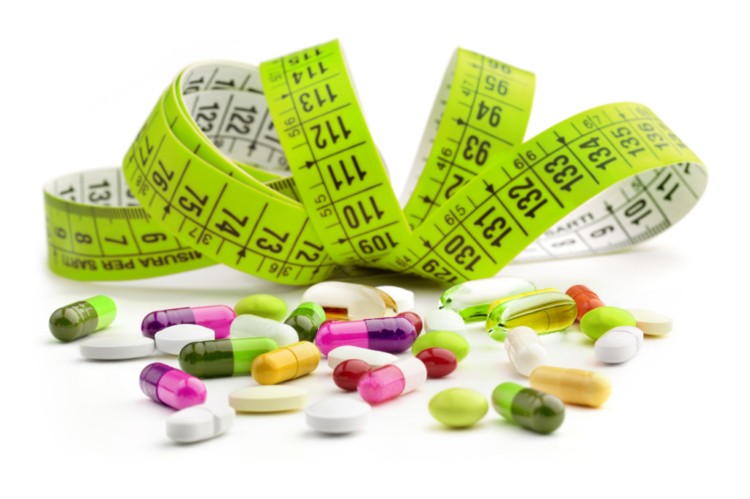The sports supplements industry is one of the largest industries in the world of sports, especially with respect to revenue. Athletes are often attracted to these supplements by the effective marketing approaches used by marketers to sell these products. In sports, every athlete seeks to stage the best performances to achieve different milestones through their sporting life. The availability of supplements that can enhance the performance of these athletes makes them seductively attractive for these individuals. No one would miss an opportunity to improve their performance, irrespective of the risks that exist. However, there is a need to ensure that these supplements are regulated. The lack of regulations in the sports supplement industry could lead to increased risks for the athletes. Perhaps we need to have a more standard approach to the management of sports supplements.
By Gabriel I. Escalera
First, it’s essential to first have a better understanding of what sports supplements are in the sporting industry. Sports supplements are additional nutrients that individuals can add to their normal diets to improve their physical abilities to perform in physical activities. Active athletes often include supplements in their diets to achieve sufficient nutrition for optimal performance in sports. In addition, athletes also use supplements to compensate for nutritional deficiencies. Most importantly, there is a belief among athletes that supplements significantly improve their abilities, helping them achieve higher performance.
Supplements play an important role in the diets of athletes. As the name suggests, these substances should be used in addition to the normal diet, as opposed to being replacements. There are supplements that have been developed based on scientific evidence. This means that there are supplements in the market that can be beneficial to the athletes who consume them. There are several benefits that athletes can draw from using these supplements. One of the most significant benefits is that they can legally improve the performance of athletes. Other than that, supplements can also be used to attain the required weight for a specific sport’s weight classes. Similarly, they can be effective in losing weight for a specific sport. Supplements can also be used by athletes to build muscles and improve the circulation of oxygen within the body. Moreover, supplements also provide athletes with an option that helps them avoid the temptations of using other performance-enhancing drugs that are banned in most competitive sporting activities. As such, supplements are critical for athletes, especially with respect to the possibility of enhancing performances.
There is a significant difference between performance-enhancing drugs and dietary supplements. There is a complete ban on performance enhancing drugs in the sporting world. However, dietary supplements are allowed within the sporting world. In the United States, the Food and Drug Administration (FDA) does not place strict regulations on sports supplements. So, the manufacturers of these substances are not required to submit samples of their products to the FDA. The only requirement for sport supplement manufacturers is to make a claim of the health benefits of the supplement, based on scientific evidence. However, the FDA does not go beyond that to scientifically verify these claims. Because of this there may be inadequate regulation of sports supplements, and this places the athlete at the risk of consuming substances that may be harmful to them.
The use of supplements has continued to be a controversial topic among the stakeholders in the supplement industry. These controversies tend to keep the conversation going and ensure that we can develop policies and laws that regulate the production and use of sports supplements. There are concerns about the processes involved in the manufacture of some sports supplements. The manufacturing process plays a significant role in determining the final product. The manufacturing process involves the use of different ingredients and processes that are not entirely known or understood.
Another important area of concern over sports supplements is that of the quality of these supplements. The quality of the supplement is critical however, the FDA does not require any quality standards on supplements. The FDA only requires that the manufacturers make a claim about the health benefits of these supplements. The FDA does not require the manufacturer to provide clinical or scientific trial results that verify the claims. This means that the manufacturers have considerable leeway to provide inaccurate information about the supplements to get approval from the FDA. It is also possible that the manufacturers could create the same substance, give it a different name, and different claims to ensure that they are seen as different supplements.
Based on these observations, there appears to be a need to develop programs, policies, and laws that effectively regulate the production and sale of sports supplements. There is a need for the stakeholders, especially the FDA, to change the approach to the management of the supplements in the market. Regulations should be developed to streamline the manufacturing process. Just like in the manufacture of medicines, there seems to be a need to regulate the manufacture of sports supplements. These supplements, when ingested, have the capacity to alter the body’s function. Their effects are similar to medicines. The regulation of the manufacturing process would ensure that there is a standard quality for every type of supplement. It could ensure that the most appropriate ingredients and processes are used in their manufacture.
Quality control measures should also be implemented to ensure that the supplements are not harmful. The quality of the supplements is dependent on scientific validation of their effectiveness in achieving the objectives for which they are created. As such, the FDA should implement programs that would compel the manufacturers to provide scientific verification for the health claims made. This would mean that quality is central to the development and production of the sports supplements. As such, it could provide a regulatory framework established to eliminate the safety risks associated with sports supplements. This way, sports supplements will be able to achieve their fundamental objectives without creating any controversy.
References
Kapoor, A., & Sharfstein, J. M. (2016). Breaking the gridlock: Regulation of dietary supplements in the United States. Drug testing and analysis, 8(3-4), 424-430. Maughan, R. J., Burke, L. M., Dvorak, J., Larson-Meyer, D. E., Peeling, P., Phillips, S. M., … & Meeusen, R. (2018). IOC consensus statement: dietary supplements and the high-performance athlete. International journal of sport nutrition and exercise metabolism, 28(2), 104-125.


 HEALTH & WELLNESS6 years ago
HEALTH & WELLNESS6 years ago
 herbs9 months ago
herbs9 months ago
 HEALTH & WELLNESS5 years ago
HEALTH & WELLNESS5 years ago
 TRAINING & FITNESS6 years ago
TRAINING & FITNESS6 years ago
 HEALTH & WELLNESS6 years ago
HEALTH & WELLNESS6 years ago
 Fitness6 years ago
Fitness6 years ago
 DIET & NUTRITION6 years ago
DIET & NUTRITION6 years ago
 HEALTH & WELLNESS6 years ago
HEALTH & WELLNESS6 years ago






